Imagine a place that people can go to get through their problems and prepare their selves to restart a new life. Imagine that these process includes learning a permacultural way of understanding the reality. That’s what ARCAH’s project is working to reach in a therapeutic community (CT) SP- Brazil.
ARCAH is a Brazilian NGO who’s vision is to be efficient and to offer quality support to social projects and business focused on the reduction and, where possible, eradication of homelessness through programs developed from productive occupational therapy on self-sustainable farms.
According to data from MDS – Ministry of Social Development and Fight against Hunger, it is estimated that, in Brazil, the street population reaches approximately 50,000 persons, which at least 15,000 reside in Sao Paulo’s downtown area. According to 2011 census, approximately 74% of the homeless are addicted to some kind of drug.
Since 2014, Permaculture has become a effective way of think and understand reality in the ARCAH’s project. With a holistic approach based in the community of San Patrignano’s experience, permaculture has been implemented in the everyday challenges of our therapeutic community.
The “permaculture look” is a systemic way of see and understand the world around us. It’s a possibility of reconstruction of the reality in a theoretic and practical way that can help people and places to become more complex, resilient and autonomous.
Therefore, Permaculture is helping to empower people and projects to overcome a reality of less care with other people or the environment to a reality of hope and abundance.
The Alvorada’s case:
Alvorada is a Therapeutic Community (CT) where we have been working the permaculture principles since 2014. It has around 3.000 square meters and can welcome till 60 guests. After a welcome program, our guests are welcome for a program of 2 years in which they will be taken care and will learn a new job to prepare them for a new life in society.
During these period, we have a strict daily schedule in the CT, so they can start to re-learn how to live respecting rules. A set of activities are a part of the schedule, as morning meditation, sports, cooking, planting classes (every Monday night it’s permaculture class), etc…
We believe that establishing a permaculture look is letting a new way of understand life and it’s relations flourish. It’s a way of appropriate a systemic conception of the reality. “To become more resilient in an era of change”.
Therefore, we are not only helping people to get back with their lives into the society, but we are enabling them to be part of the construction of a new society, that really cares about other people and environment.
Every Monday night we have a theoretical class of permaculture that will cover all the principles, methodology and different kinds of techniques. After that, we have the entire week to try to use what we learned on a daily basis or on a new idea in development.
After the firsts months of work we got to change a bit the way we were gardening looking forward a more systemic way in which we would spare energy and avoid extra-work or pollution. In the next pictures we will show what we have done in 2014.
For further information, please feel free to contact us at ARCAH.org or [email protected].



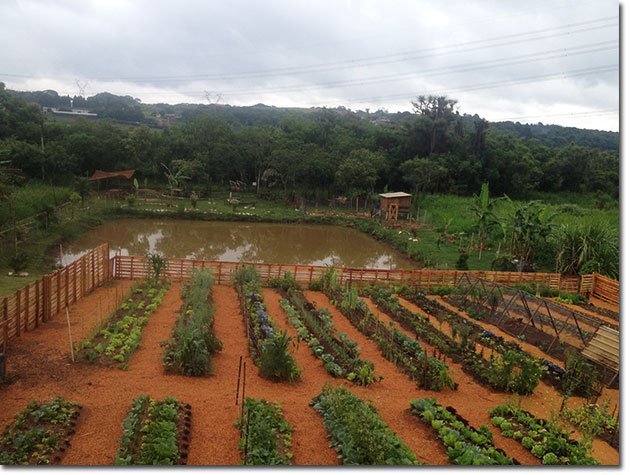
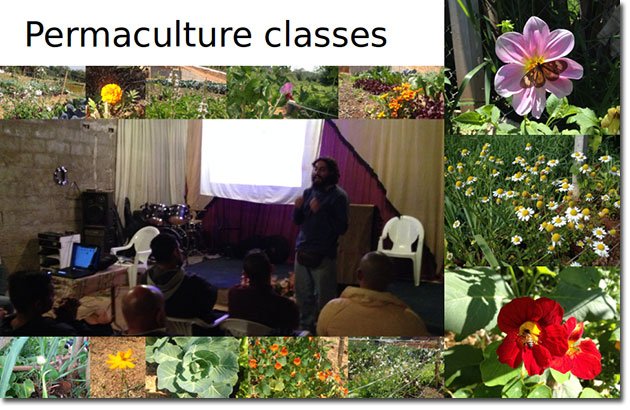
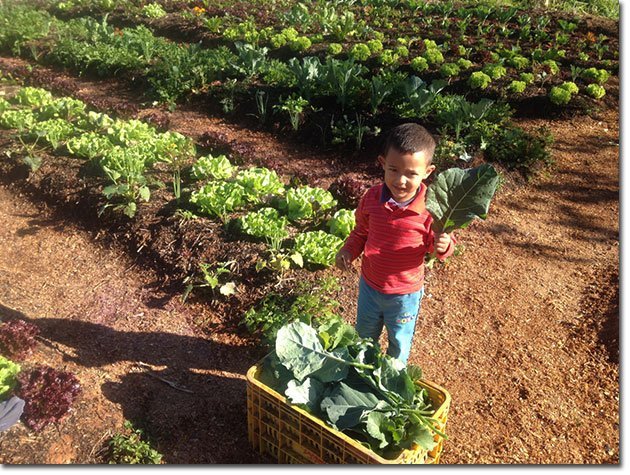
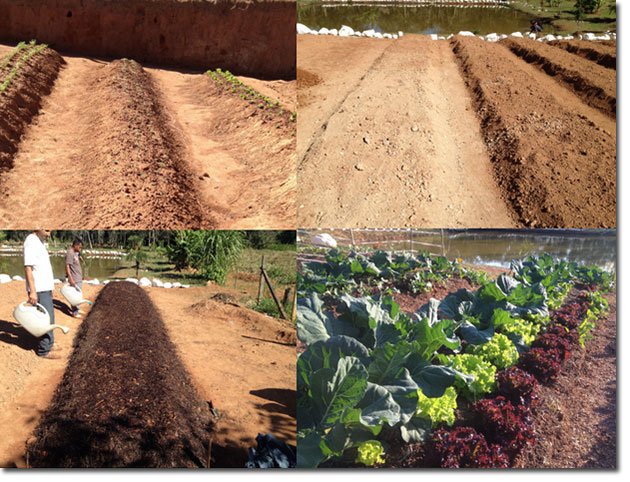

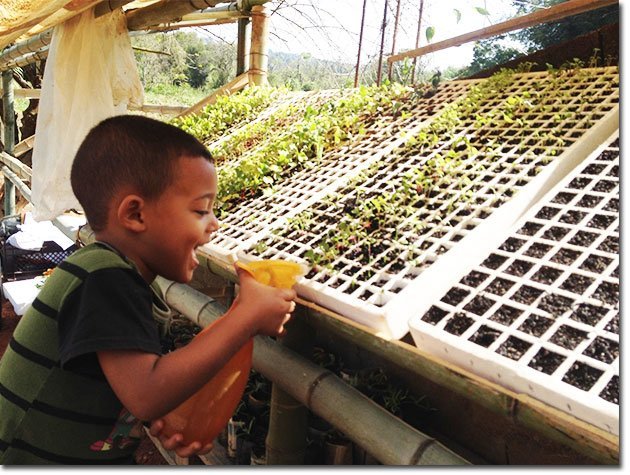
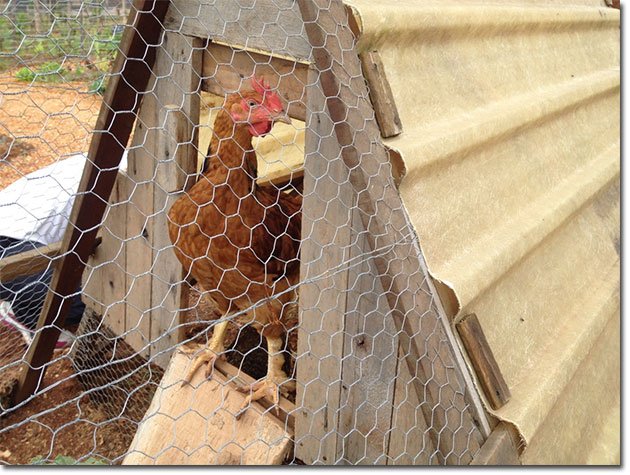
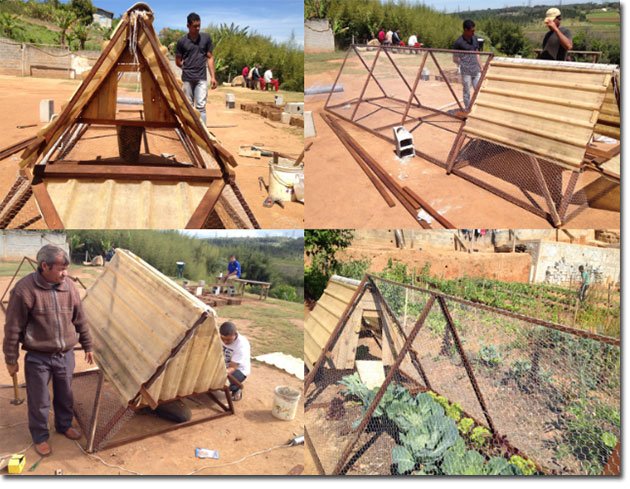
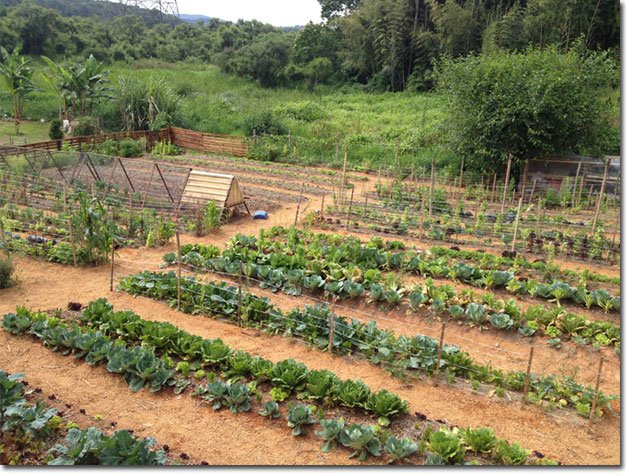

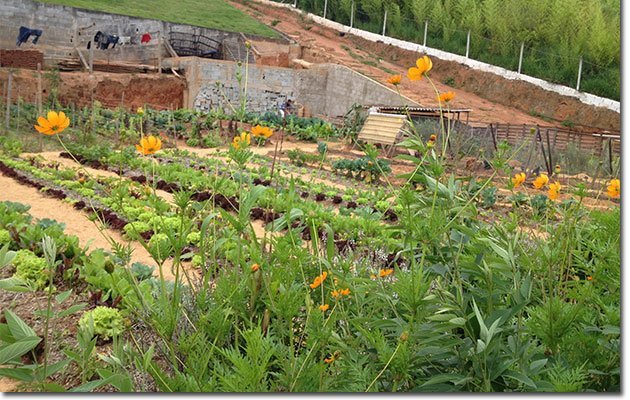
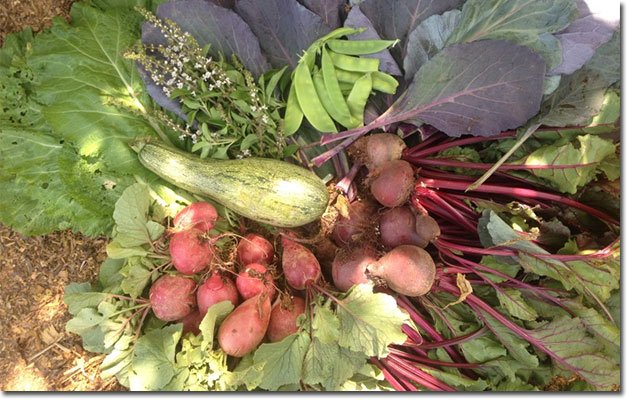










Congratulations, Joao, for the inspirational work. You already had People Care figured out. With the help of permaculture will have surplus for much more. Parabéns.
Congratulations on getting this project going. We operate a similar concept farm here in Washington State. We focus on those who have experienced hate crimes or traumatic life changing experiences. We have been around since 2012. We also believe nature and the principles of permaculture can be extremely healing while helping the individual find a new normal and a path forward to reconnect with society on their terms. I’m so happy that you brought this story from Brazil to others in the permaculture world. Our work heals in so many ways.
Hi Rohn
Do you by any chance have a website for your project?
Thank you.